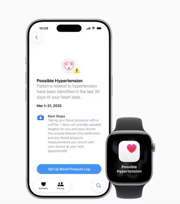Tragic death after trip abroad sparks urgent warning for Aussies: 'Just unbelievable'
By
Gian T
- Replies 5
Travelling the world is a dream for many, offering the thrill of new experiences and unfamiliar landscapes.
However, one young traveller’s story serves as a sobering reminder that journeys abroad can sometimes take an unexpected turn.
What began as an exciting adventure quickly unravelled into an unforeseen crisis. The hidden risks of international travel often remain unnoticed—until it’s too late.
Christine Visnjic, a 24-year-old from Western Sydney and a hard-working Amazon manager, had recently returned from a three-week holiday in Japan.
She was full of life and had ambitious plans for the future, including a desire to delve into her European heritage.
But just days into the new year, her aspirations were cut short by a silent and deadly condition known as deep vein thrombosis (DVT).
DVT is a serious medical condition where a blood clot forms in a deep vein, usually in the legs.
It can lead to complications such as a pulmonary embolism if the clot breaks free and travels to the lungs.
While DVT can affect anyone, certain factors increase the risk, including prolonged periods of immobility, such as during long-haul flights.
Christine's brother, Jason Visnjic, shared her sudden decline. One morning, Christine experienced a nagging pain in her leg, which quickly escalated to a swollen and red appearance.
‘It’s unbelievable. It’s just unbelievable,’ he said.
‘Who would’ve thought—24 years old and getting a blood clot that becomes so fatal.’
Despite appearing fine the night before, the situation took a dire turn as she was being driven to Westmead Hospital.
She vomited, suffered a seizure, and collapsed, all within 30 minutes of first feeling unwell.
The rapid response of nurses and paramedics couldn't prevent the catastrophic outcome.
Christine suffered a bilateral stroke after a blood clot travelled from her leg to her lung, then to her heart, and finally to her brain.
Despite the best efforts of the medical team, she was declared brain dead after 72 hours, and her family faced the heartbreaking decision to withdraw life support.
Christine's sudden death left her family, friends, and co-workers in shock.
With no family history of blood clots and no apparent cause for the DVT, her brother and the doctors were left searching for answers.
‘I was talking to a doctor, and I asked him “How often do you see this?” and he said to me ‘a case like this, we do know about it in literature…in my career of 44 years in the ICU, this is the second time’ and he started crying,’ he recounted.
The rarity of such a case was underscored by a doctor who, in his 44-year career, had only seen a similar case once before.
‘We embraced her and watched her pass. For about 20 minutes, her heart was independent, and we just slowly saw it all go away—and she doesn’t even know,’ Jason added.
‘Don’t just go chasing work. There are many lessons to take away. Luckily for her, Christine still managed to enjoy her life till her prime, both [in] career and [social life].’
For our readers, especially those who love to travel, it's crucial to recognise the signs of DVT, including swelling, pain, tenderness, and red or discoloured skin on the leg.
If you experience these symptoms, seek medical attention immediately.
Preventative measures such as staying hydrated, moving around during flights, and wearing compression stockings can also reduce the risk.
Christine's memory lives on through the efforts of her co-workers, who have set up a GoFundMe to honour their cherished friend with a headstone.
Her story is a poignant reminder that life is precious and unpredictable and that we must care for ourselves and each other.

Have you or someone you know been affected by DVT or other travel-related health issues? How do you stay healthy and safe on your adventures? Your stories and insights could help others stay informed and vigilant.
However, one young traveller’s story serves as a sobering reminder that journeys abroad can sometimes take an unexpected turn.
What began as an exciting adventure quickly unravelled into an unforeseen crisis. The hidden risks of international travel often remain unnoticed—until it’s too late.
Christine Visnjic, a 24-year-old from Western Sydney and a hard-working Amazon manager, had recently returned from a three-week holiday in Japan.
She was full of life and had ambitious plans for the future, including a desire to delve into her European heritage.
But just days into the new year, her aspirations were cut short by a silent and deadly condition known as deep vein thrombosis (DVT).
DVT is a serious medical condition where a blood clot forms in a deep vein, usually in the legs.
It can lead to complications such as a pulmonary embolism if the clot breaks free and travels to the lungs.
While DVT can affect anyone, certain factors increase the risk, including prolonged periods of immobility, such as during long-haul flights.
Christine's brother, Jason Visnjic, shared her sudden decline. One morning, Christine experienced a nagging pain in her leg, which quickly escalated to a swollen and red appearance.
‘It’s unbelievable. It’s just unbelievable,’ he said.
‘Who would’ve thought—24 years old and getting a blood clot that becomes so fatal.’
Despite appearing fine the night before, the situation took a dire turn as she was being driven to Westmead Hospital.
She vomited, suffered a seizure, and collapsed, all within 30 minutes of first feeling unwell.
The rapid response of nurses and paramedics couldn't prevent the catastrophic outcome.
Christine suffered a bilateral stroke after a blood clot travelled from her leg to her lung, then to her heart, and finally to her brain.
Despite the best efforts of the medical team, she was declared brain dead after 72 hours, and her family faced the heartbreaking decision to withdraw life support.
Christine's sudden death left her family, friends, and co-workers in shock.
With no family history of blood clots and no apparent cause for the DVT, her brother and the doctors were left searching for answers.
‘I was talking to a doctor, and I asked him “How often do you see this?” and he said to me ‘a case like this, we do know about it in literature…in my career of 44 years in the ICU, this is the second time’ and he started crying,’ he recounted.
The rarity of such a case was underscored by a doctor who, in his 44-year career, had only seen a similar case once before.
‘We embraced her and watched her pass. For about 20 minutes, her heart was independent, and we just slowly saw it all go away—and she doesn’t even know,’ Jason added.
‘Don’t just go chasing work. There are many lessons to take away. Luckily for her, Christine still managed to enjoy her life till her prime, both [in] career and [social life].’
For our readers, especially those who love to travel, it's crucial to recognise the signs of DVT, including swelling, pain, tenderness, and red or discoloured skin on the leg.
If you experience these symptoms, seek medical attention immediately.
Preventative measures such as staying hydrated, moving around during flights, and wearing compression stockings can also reduce the risk.
Christine's memory lives on through the efforts of her co-workers, who have set up a GoFundMe to honour their cherished friend with a headstone.
Her story is a poignant reminder that life is precious and unpredictable and that we must care for ourselves and each other.
Key Takeaways
- A young Sydney woman named Christine Visnjic tragically died from deep vein thrombosis (DVT) following an international holiday.
- Christine, a 24-year-old Amazon manager, experienced a seizure and cardiac arrest just minutes after feeling unwell due to a blood clot that travelled to her brain.
- There was no family history of blood clots, and the exact cause of her DVT remains unknown, with the condition being a rare occurrence for someone her age.
- Her family and Christine's co-workers are raising funds for a headstone to honour her memory, and her brother is urging young people to be vigilant about their health and enjoy life to the fullest.








